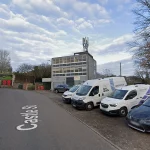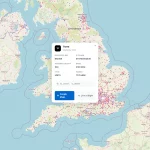RIPE Warn EU and UK Supply of IPv4 Internet Addresses to Run Out Next Month
Europe’s Regional Internet Registry (RIR), RIPE NCC, which handles the distribution of internet addresses for the UK and EU (needed by all devices that connect to the internet), has officially warned that they have just “one month worth of IPv4 address space” left (about 4,134,976 addresses).
At present the Internet Protocol v4 standard, which is part of a seamless technology that helps to connect your computer/mobile device with other online people and services around the world, is the dominant protocol for practically all internet-capable hardware and software.
Advertisement
Once exhausted the only new addresses will come from IPv4’s replacement, IPv6 (longer but more secure addresses), which is sadly not yet fully supported by all hardware or software. Meanwhile many ISPs have yet to build the necessary but costly dual-stack networks, which would allow them to cope with both IPv4 and IPv6 at the same time (IPv4 and v6 are otherwise not directly compatible).
RIPE NCC Statement
“As of Tuesday, 4 September, we have approximately one month (or a /10) worth of IPv4 address space (4,134,976 addresses) to distribute before we reach the last /8.
Our IPRAs are now working in pairs to ensure that all requests are dealt with efficiently and to further ensure fairness, consistency and transparency. This means that our response times may be longer than you have previously experienced.”
The final /8 block of addresses, which will ultimately be distributed to ISPs, isn’t especially significant and for most providers will be seen as marking the official point of IPv4 exhaustion in Europe. After that the only real way forward will be IPv6.
Any reputable ISP should have already considered the need for future internet addresses and planned for it, with many of the biggest providers (e.g. BT and Virgin Media) being known to have set aside a sizeable pool of spare v4’s that could be enough to last a few years before IPv6 becomes absolutely necessary.
Piers Daniell, MD of Business ISP Fluidata, said:
“This has been a long time coming with many anticipating the end to IPv4 last year but it seems the tightening of the belts and increased regulation from RIPE has meant the IPs have lasted longer than expected. It will of course take longer to filter down to consumers as most ISPs are sitting on unused stock but it is a significant milestone nonetheless.
The biggest issue moving forward is the short timeframes RIPE are now providing for issuing new blocks. It has been reducing steadily as the IPv4 blocks have been used up but from October that period is now down to just one month. This means a customer has to forecast their usage over just one month – I remember not long ago that period used to be two years.
This is near impossible for an ISP who basically will only be able to forecast a months’ worth of new customer IP demands, but even for customers this will be difficult as most new projects I have seen take longer than a month to deploy. Hence the block can’t be justified, and therefore granted as the IPs would not be used within the given timeframe.
For us (ie Fluidata) we have enough capacity in our existing pools for direct customers to last us quite a while but for customers looking to become ISPs and need to have a RIPE account, time is definitely running out.”
It’s hoped that the depletion of IPv4 addresses around the world, which started in Asia last year and is now about to hit Europe, will be seen as a wake-up call for network and hardware developers to ensure that IPv6 support is built into all their future systems.
Advertisement
Anybody seeking more detail about the IPv4 / IPv6 situation, including what individual UK ISPs are doing about it, should check out our related article – UK ISPs Respond to Readiness Fears on World IPv6 Launch Day . This explains the situation in more detail.
Mark is a professional technology writer, IT consultant and computer engineer from Dorset (England), he also founded ISPreview in 1999 and enjoys analysing the latest telecoms and broadband developments. Find me on X (Twitter), Mastodon, Facebook, BlueSky, Threads.net and Linkedin.
« Loyal Broadband Customers “Wasting” GBP1.1bn a Year by Not Switching ISP

















































Comments are closed